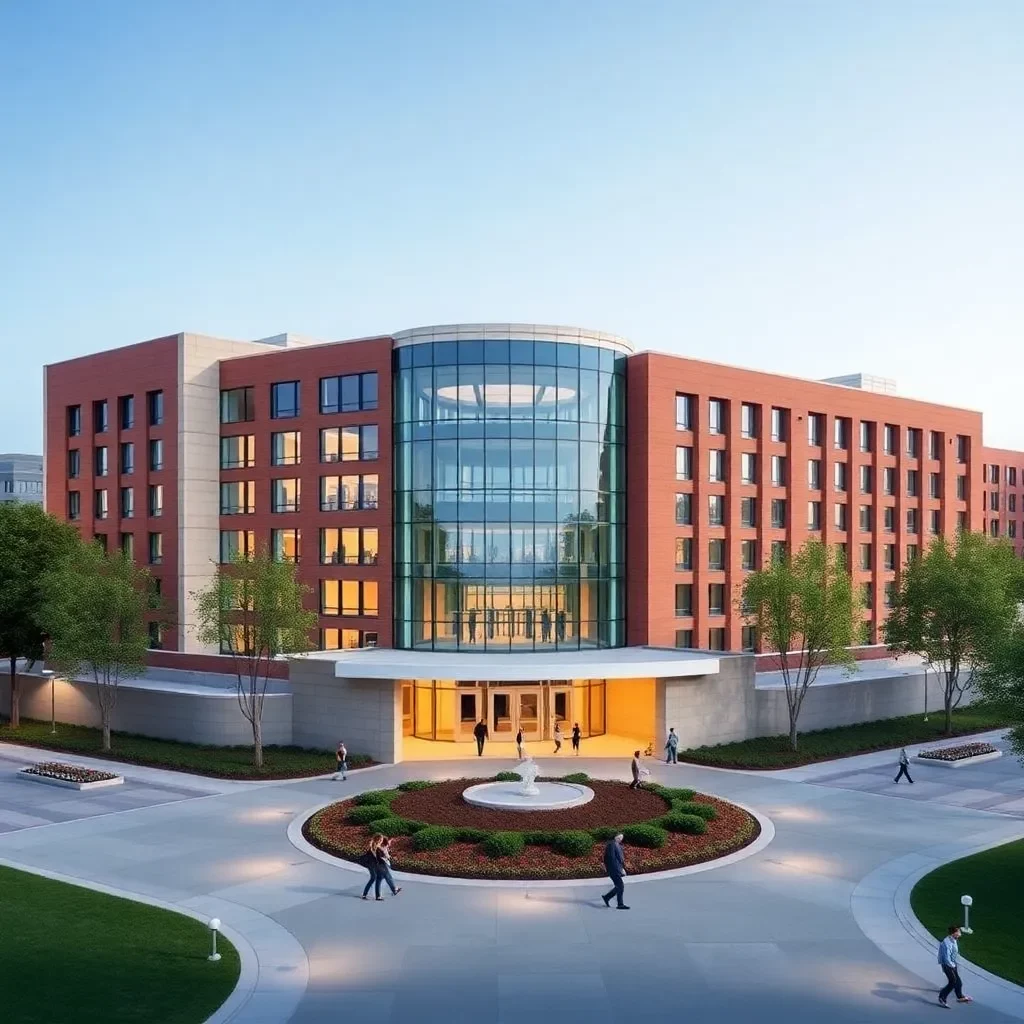Columbia Set for Groundbreaking Neurological Hospital Development
Columbia, South Carolina—is buzzing with excitement as the University of South Carolina (USC) has announced plans to build a revolutionary hospital dedicated solely to the integrated care of patients suffering from brain and nervous system illnesses. This initiative stands out not just for its focus but also because it marks the first standalone comprehensive medical facility of its kind in the Southeast.
Addressing a Dire Need
In South Carolina, the need for enhanced neurological care is desperately pressing. Statistics from the S.C. Department of Public Health reveal that stroke ranks as the sixth leading cause of death in the state. Additionally, the Centers for Disease Control and Prevention notes that the state has the fourth highest death rates due to traumatic brain injuries. The situation is exacerbated by increasing cases of chronic neurological conditions like epilepsy and Alzheimer’s disease.
For many residents seeking treatment, the lack of accessible neurological care within state lines often means they have to travel out of state, which can be both emotionally draining and financially burdensome. The planned USC hospital aims to ensure that high-quality, specialized care is accessible right in Columbia, reducing travel woes for patients and their families.
A Comprehensive Approach
The proposed hospital will feature approximately 115 beds and offer advanced care in a variety of areas, including neurological rehabilitation for conditions like trauma, stroke, and cancer. Not only will it provide employment and treatment options, but it will also serve as a training ground for USC students in various fields such as medicine, nursing, biomedical engineering, and even artificial intelligence.
USC President Michael D. Amiridis expressed his enthusiasm, highlighting, “This is a tremendous opportunity to address a critical gap in health care for brain-related conditions, not just for our state, but for the entire Southeast.” His words resonate with the community’s hopes for improved healthcare infrastructure.
Location and Collaboration
The hospital is set to be built next to USC’s new School of Medicine campus in the BullStreet District. This location is strategic; it puts the hospital in close proximity to the cutting-edge research and treatment facilities already being developed. USC is also developing the Brain Health Center, an outpatient facility that aims to improve care for cognitive issues, including dementia. Together, these facilities represent a leap forward in the quest for improved neurological health solutions.
The collaboration doesn’t stop there. The hospital will deepen USC’s partnership with Prisma Health, expanding on continuous advances being made in brain health treatment and research. Chairman of the USC Board of Trustees, Thad H. Westbook, remarked, “This would be the most impactful project in the history of the university, particularly for the quality of life of South Carolinians.” His words speak volumes about how the new facility could enhance the lives of people living with brain-related diseases.
Funding and Future Prospects
In terms of logistics, the USC Board of Trustees recently approved an agreement to secure around $10 million for initial architectural and engineering work. On top of that, the university will seek $150 million from the state budget in hopes of moving forward with this ambitious $350 million project.
Alongside the hospital, other USC projects in various stages of development promise to further enrich healthcare offerings in the region. This includes a new Nursing Training Center aiming to significantly boost nursing graduates in the Midlands and a comprehensive array of clinics within the Brain Health Network, which provides essential diagnostics and care across underserved areas.
A Bright Future Ahead
With the USC neurological hospital expected to open its doors as early as 2028, the vision for the future is optimistic. The combined efforts of USC and its partners aim to transform the landscape of neurological healthcare in South Carolina, providing not just state-of-the-art treatment but also fostering a culture of education, research, and community support.
As Columbia gears up for this exciting development, it’s clear that this hospital represents not just a new building but a critical lifeline for countless individuals and families in need. The commitment to improve healthcare access and quality in our community is a cause for celebration and hope.








